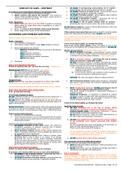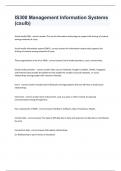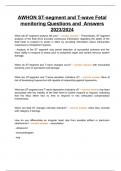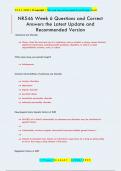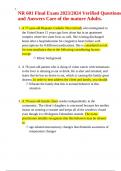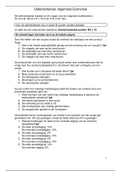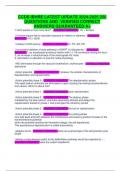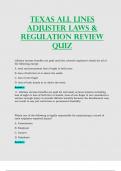Overig
LPC Notes International Trade and Transactions Revision Notes (Distinction level) 2022
- Vak
- Instelling
Notes on International Trade and Transactions for the LPC at BPP University. Why to waste money on notes that simply replicate the materials you receive in class? These Revision notes have been restructured and optimised for exams. I have spent months simplifying the material to make sure that ...
[Meer zien]
